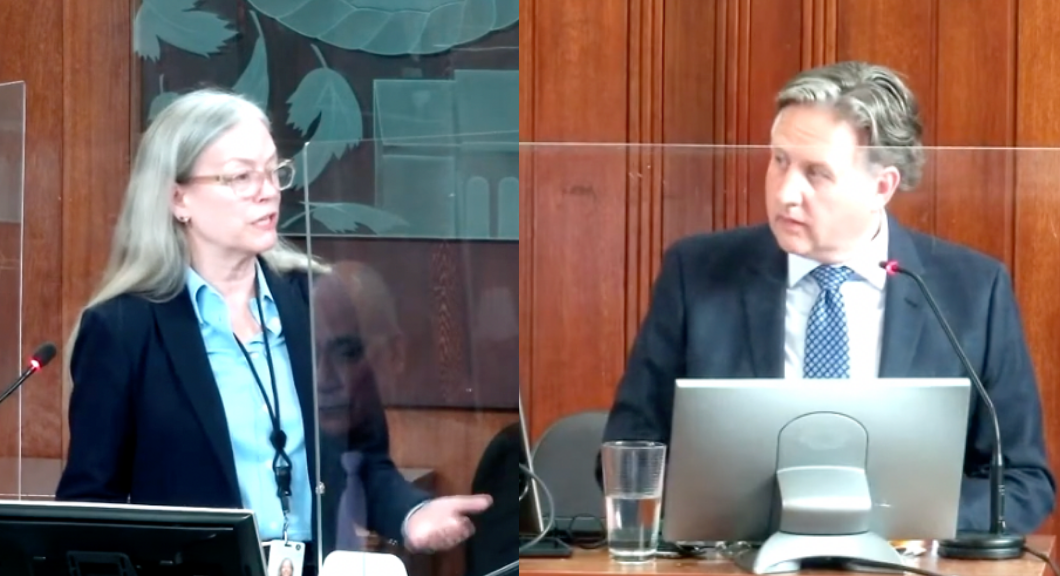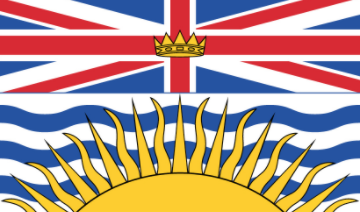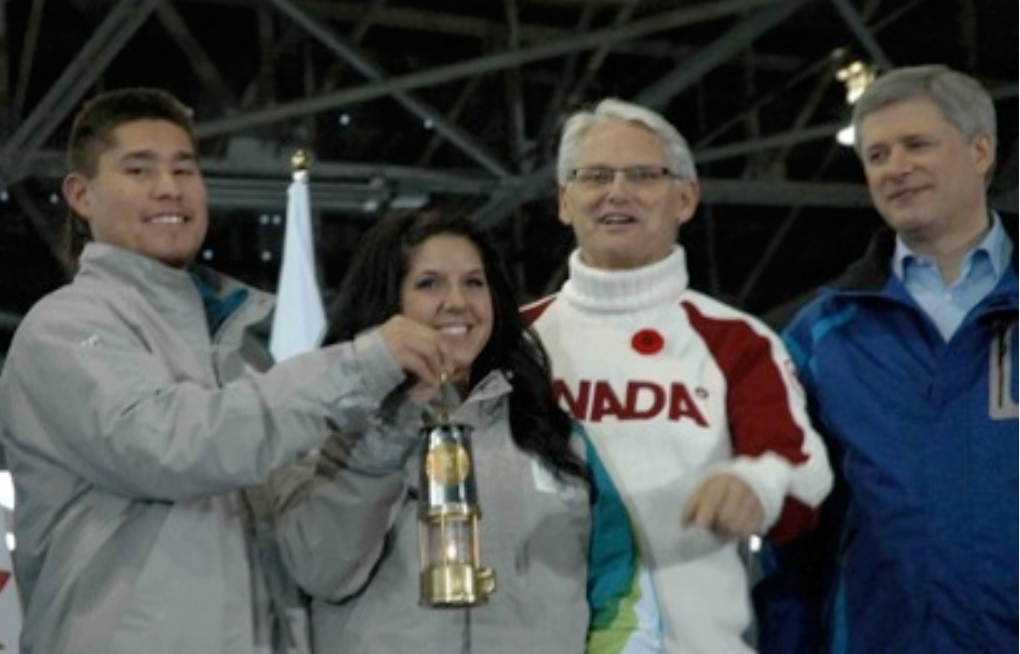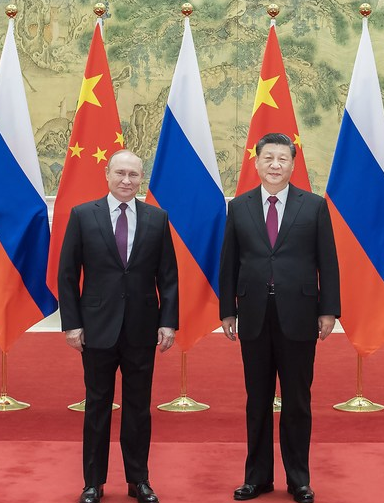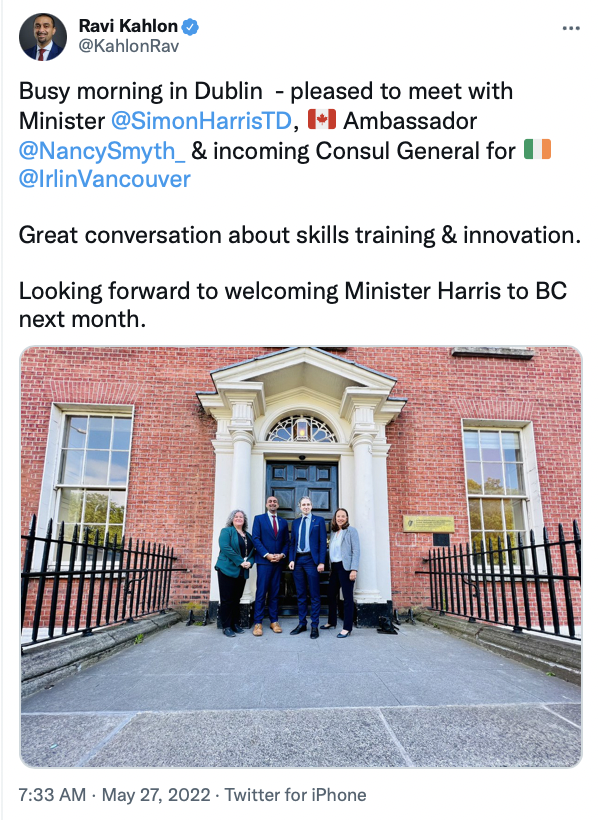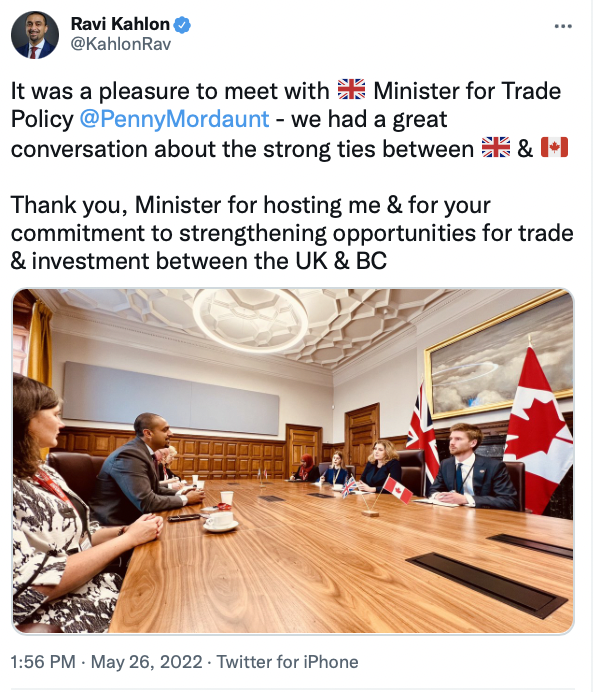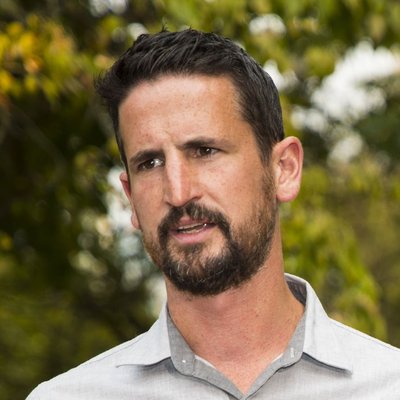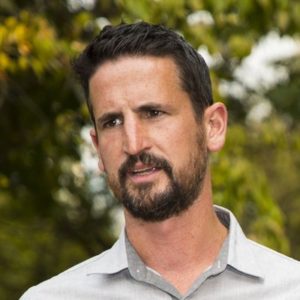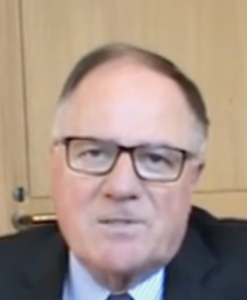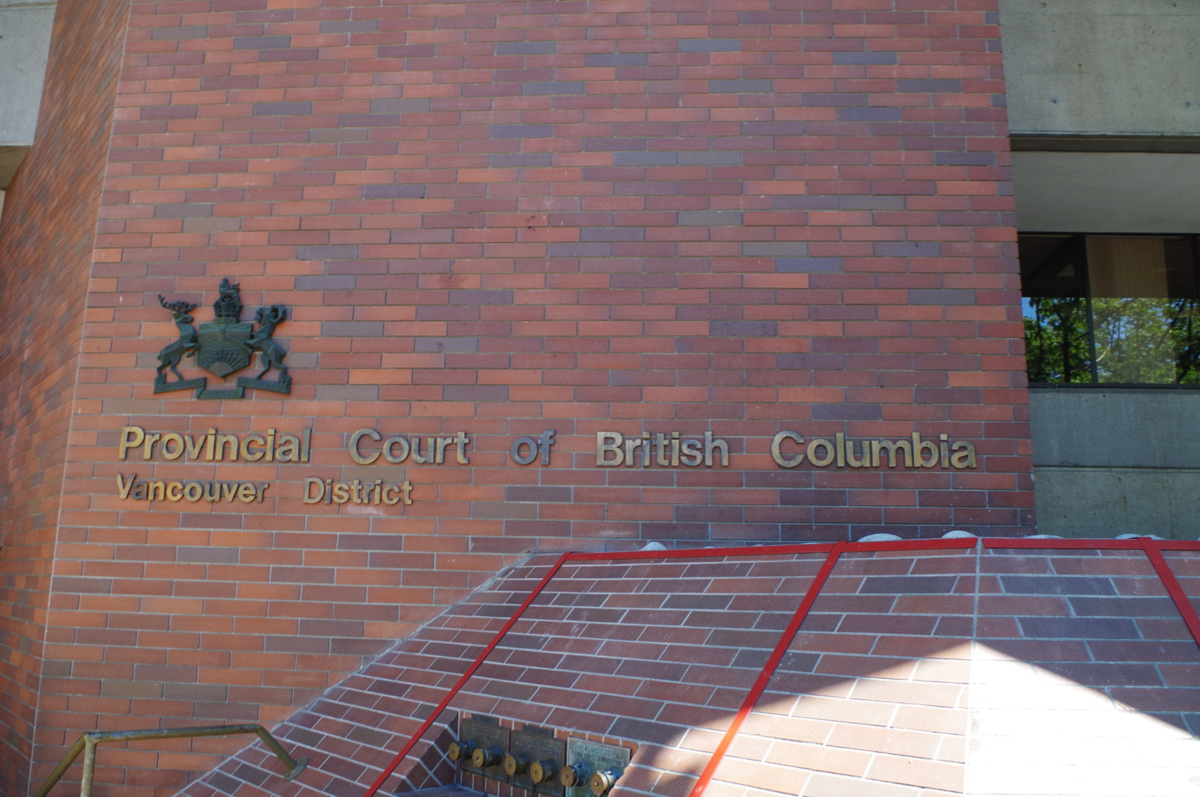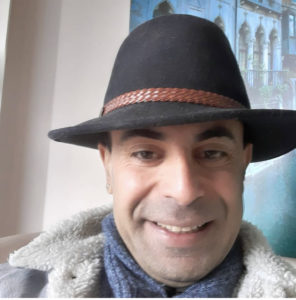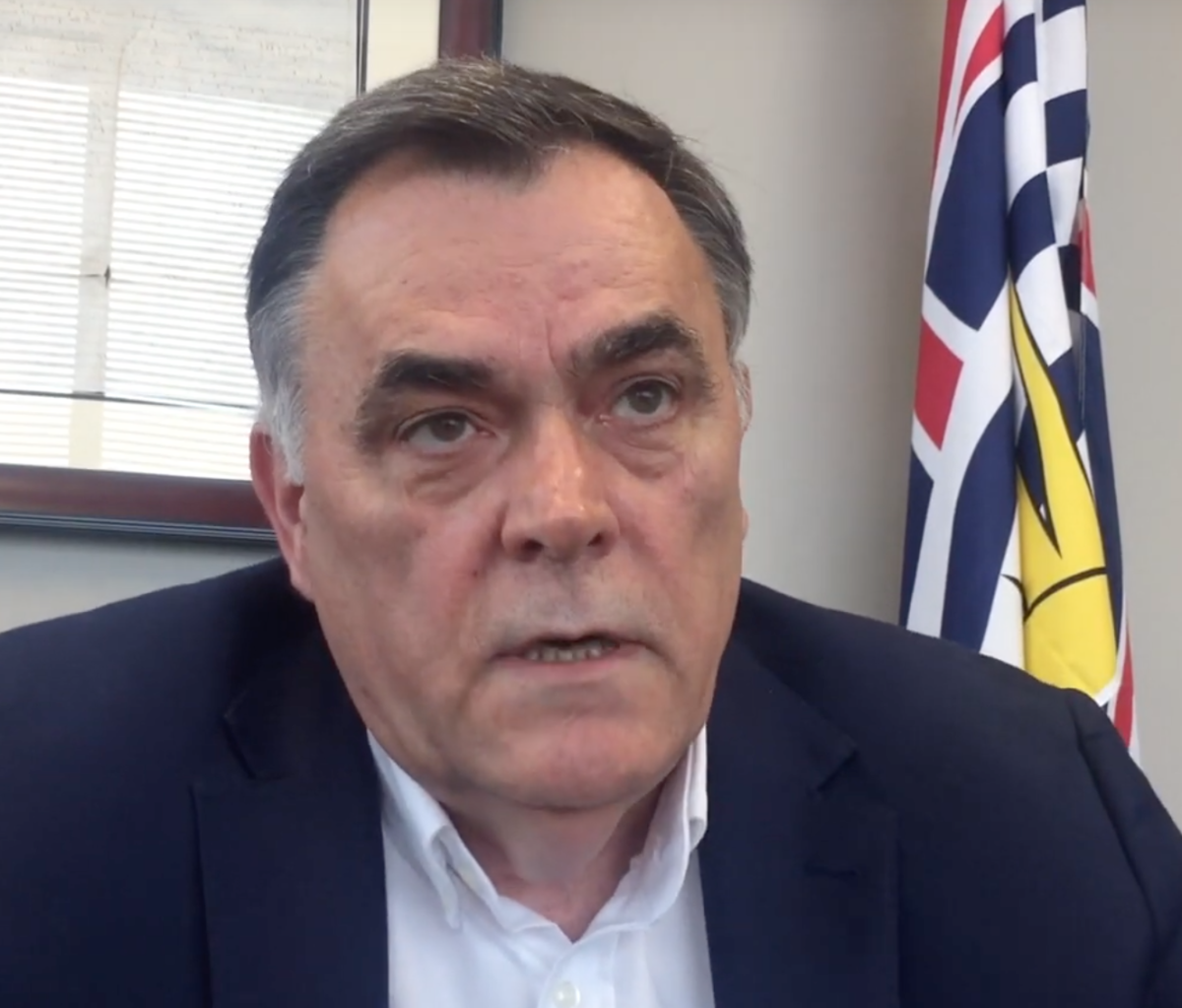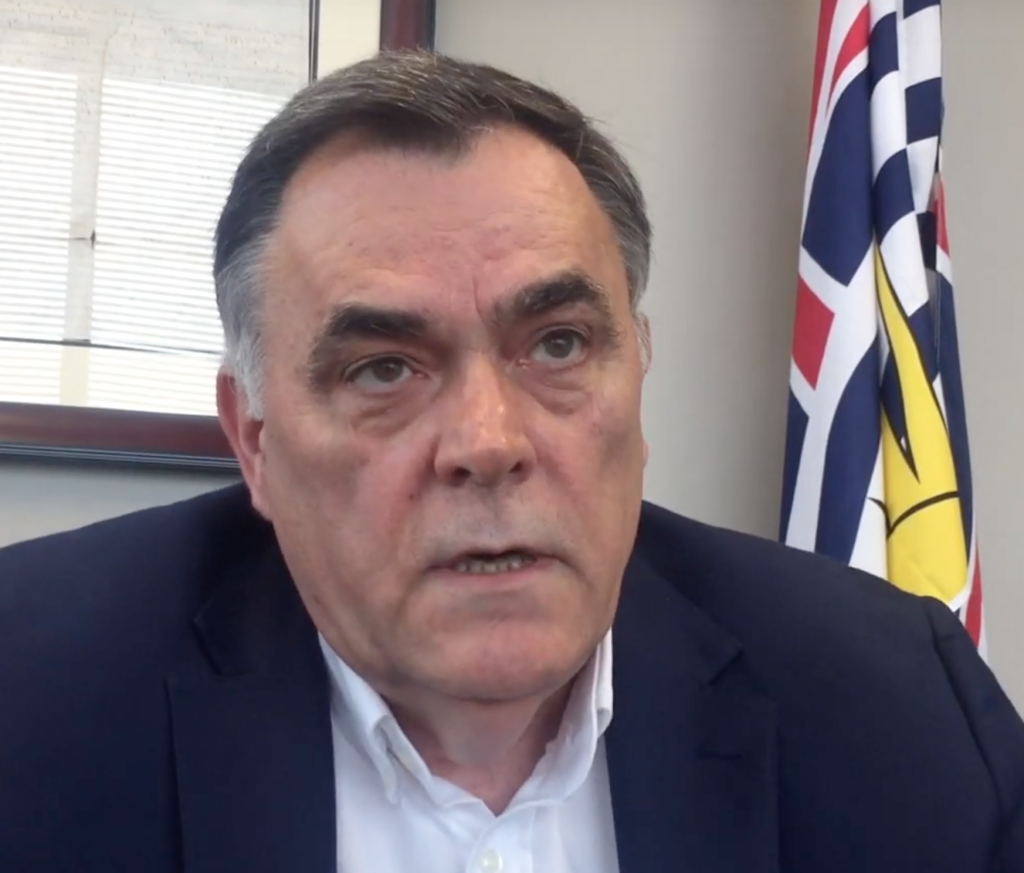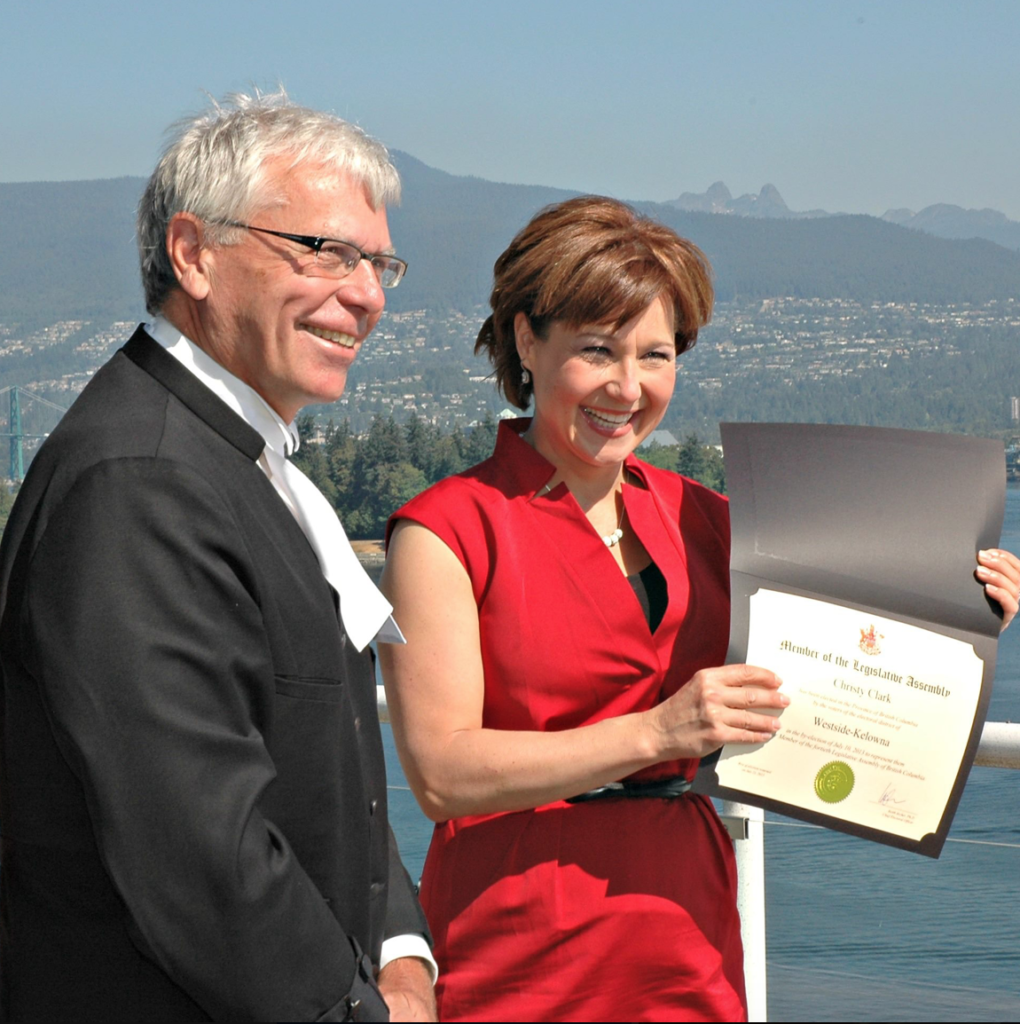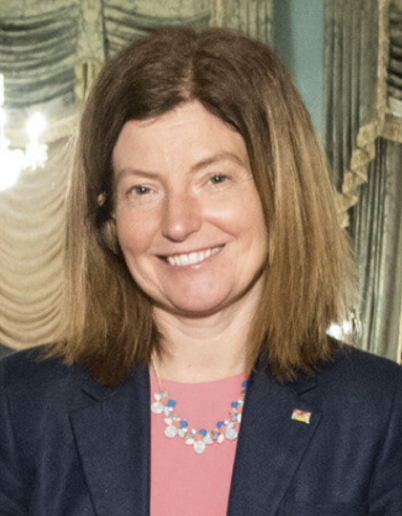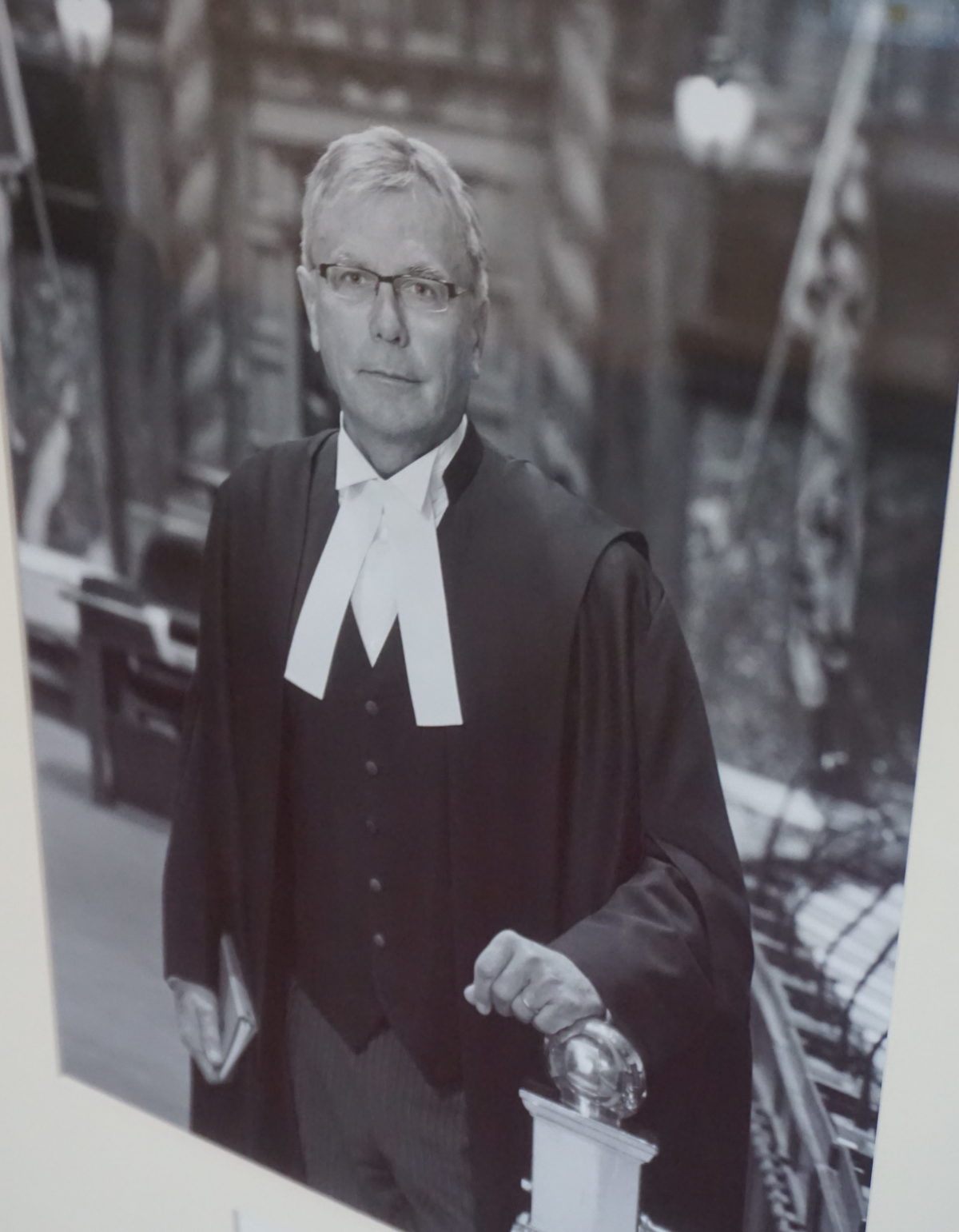Lone Olympic skeptic Hardwick pledges plebiscite if she beats Stewart for the mayoralty
Bob Mackin
Will third time be a charm for Coun. Colleen Hardwick?
At the current council’s last policy and strategic priorities committee meeting on July 20, the TEAM for a Livable Vancouver mayoral candidate failed a second time to get a plebiscite on the 2030 Winter Olympics bid onto the Oct. 15 ballot.
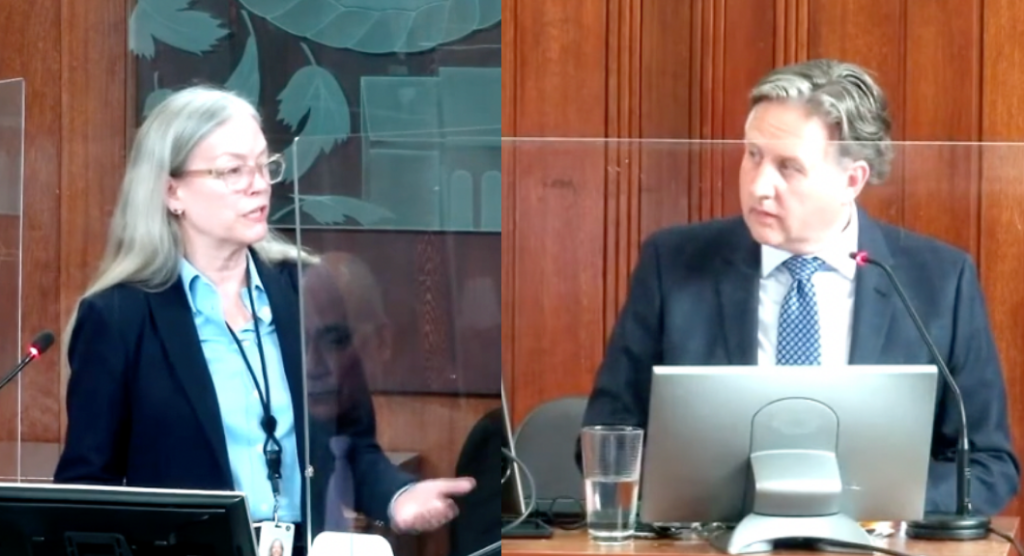
Coun. Collen Hardwick (left) and Mayor Kennedy Stewart at the April 12 city council meeting (City of Vancouver)
In April, no one else seconded her motion. At the latest committee meeting, all councillors with left and right wing parties voted against the motion.
After the meeting, Hardwick pledged to give citizens the vote if she defeats Mayor Kennedy Stewart, saying there is simply too much at stake to exclude the people who would pay for the mega-event.
“In the leadup to the 2010 Games in 2003, there was a plebiscite undertaken by the city that demonstrated that the majority of Vancouverites were in support, and you could say that that significantly demonstrated public and community support,” Hardwick said.
Stewart led the opposition, with words similar to his March Tweets that city hall’s integrity commissioner ruled were misleading. This time, he accused Hardwick of violating the “spirit” of the non-binding, reconciliation-themed bid agreement with the Four Host First Nations (FHFN) and Resort Municipality of Whistler.
Stewart asked Hardwick if she would “tick the no box” in a plebiscite. She said it’s not about whether one is for or against, but doing the right thing.
“What I’d really like to have actually is the books from the 2010 Olympics that are embargoed at the archives,” she replied.
Stewart’s stance is a 180-degree turn from February 2020. After former Vancouver 2010 CEO John Furlong hatched the 2030 bid idea, Stewart said: “The very first thing that would need to happen, however, is that residents of Vancouver get to express their support through a referendum much like the first bid.”
Salt Lake City, the 2002 host, and Sapporo, Japan, the 1972 host, are also considering bids. The IOC wants to choose the 2030 host in May 2023 when it meets in Mumbai, India. The Canadian Olympic Committee (COC) has privately discouraged Vancouver, Whistler and FHFN from holding votes this year.
When Green Coun. Pete Fry earlier asked about a plebiscite, Musqueam Indian Band Chief Wayne Sparrow said feedback from the IOC indicated “it would squish the bid.” Sparrow wondered why a plebiscite would be necessary for an Olympics when there wasn’t one for either the 2025 Invictus Games or 2026 FIFA World Cup.
COC president Tricia Smith interjected, to say that the IOC is “totally open to plebiscites.”
“They just say please have the work done, before you get to the point where you come to us and say we have a bid ready,” she said.
The last time there was a plebiscite on a Canadian Olympic bid, Calgary voters in 2018 rejected a proposal for the 1988 host city to bid on the 2026 Games. Those are going to Milano Cortina, Italy instead.
“Something like this is not the Invictus Games, this is not the FIFA World Cup,” Hardwick said. “This is the Olympics. This is a $4 billion price tag and a lot of risk attached to it. And I think the responsible thing for us to do is to give the the Vancouver electors a chance to have their say.”

Deputy Vancouver city manager Karen Levitt (Vancouver.ca)
Deputy City Manager Karen Levitt recommended city council effectively put the 2030 bid on hold until senior governments decide if they will fund the mega-event and whether the NDP government in Victoria will take full responsibility for cost overruns and cancellation insurance.
Said Levitt: “Timing is absolutely I’d say the biggest issue before you in this council report. We just don’t think there is enough time to do what needs to get done between now and January when the COC will submit their submission for the COC bid.”
Stewart and seven councillors voted to direct staff to carry on exploring the bid and negotiate multiparty agreements, while seeking answers from the federal and B.C. governments about backing the bid.
ABC Coun. Sarah Kirby-Yung acknowledged the cost and indemnification concerns, but reminisced about her time in the tourism industry before and during the 2010 Games. “We are excited about this opportunity and don’t want to close the door,” she said.
Hardwick and COPE Coun. Jean Swanson voted against the motion. OneCity Coun. Christine Boyle was absent.
“I have great misgivings about our ability in this council to to sideline staff advice in this case, which is sound,” Hardwick said. “And I also am struggling with the democratic deficit that I’m seeing here and I’ve seen otherwise. We are a city of reconciliation, we embrace that. But that doesn’t preclude our responsibility to our electorate.”
After the vote, Green Coun. Adriane Carr, the meeting chair, suggested a 10-minute break for “a tiny little celebration.”
To which Sparrow responded: “I’ve heard a couple of times about the election, I’m hoping [the bid] doesn’t get into the campaigning thing, when we’re working together.”
Support theBreaker.news for as low as $2 a month on Patreon. Find out how. Click here.
Bob Mackin Will third time be a charm






